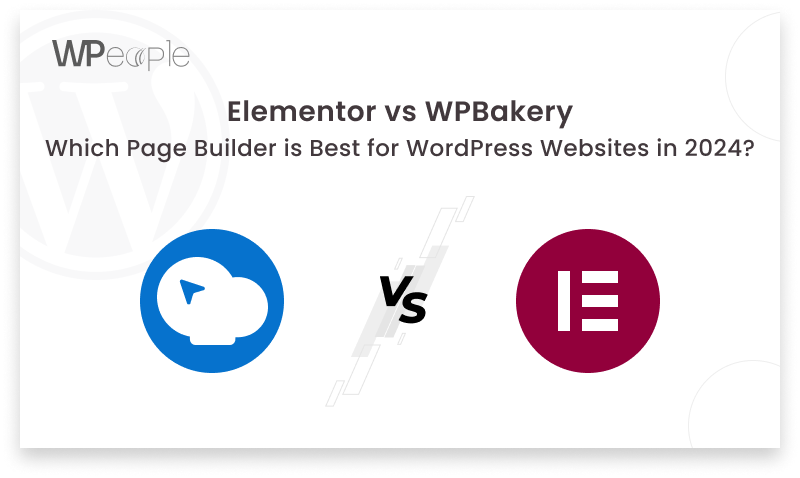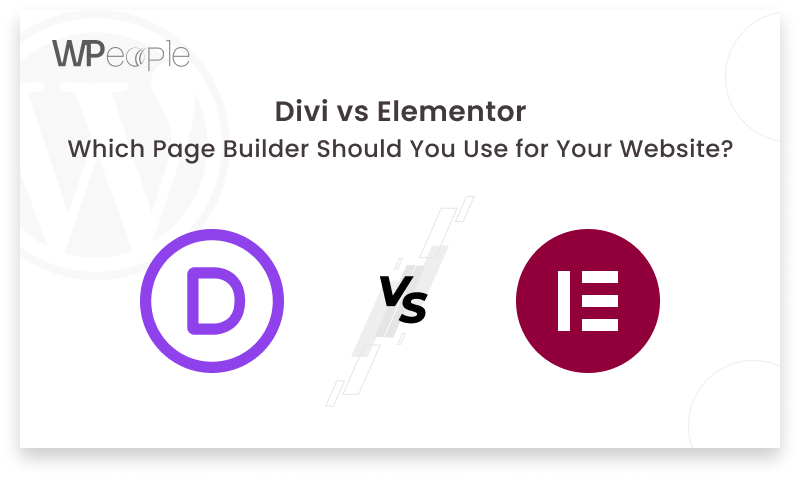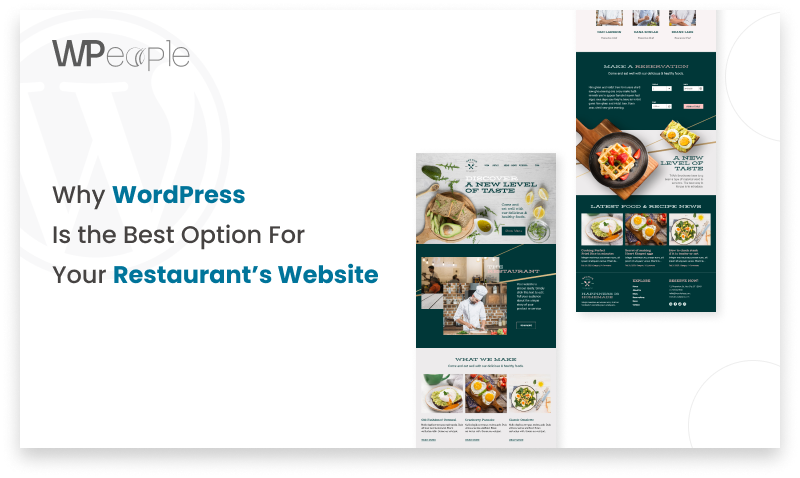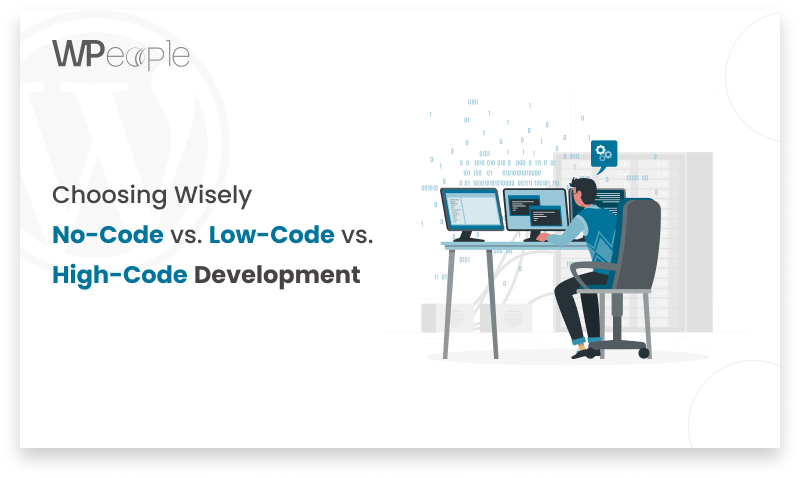
WPBakery vs. Elementor: Overview
When it comes to building websites with WordPress, page builders have become an essential tool for both beginners and experienced developers alike. They provide an intuitive drag-and-drop interface, allowing users to create visually stunning and highly functional websites without the need for extensive coding knowledge. Among the numerous page builders available, two standout options are WPBakery and Elementor.
WPBakery
Formerly known as Visual Composer, WPBakery is a veteran in the page builder space, having been around since 2011. Over the years, it has established itself as a reliable and powerful solution for creating custom page layouts and designs. WPBakery offers a vast array of features, including a drag-and-drop interface, responsive design capabilities, and a wide range of content elements.
Elementor
Elementor, on the other hand, is a relatively newer player in the market, having been launched in 2016. Despite its youth, Elementor has quickly gained popularity among WordPress users due to its modern and user-friendly approach to website building. With a strong focus on usability and performance, Elementor aims to provide a seamless and efficient page-building experience.
WPBakery vs. Elementor: Features Comparison
To better understand the differences between these two page builders, let’s delve into a detailed comparison of their features.
Interface and Ease of Use
Elementor takes the lead when it comes to ease of use, especially for beginners or users with limited technical expertise. Its user interface is clean, intuitive, and highly visual, making it easier to navigate and understand the various design options. WPBakery, on the other hand, can be more complex and overwhelming, particularly for those new to page builders.
Elements and Widgets
Both WPBakery and Elementor offer a wide range of content elements and widgets, allowing users to add various components to their pages, such as text blocks, images, buttons, sliders, and more. However, WPBakery has a slight edge in terms of the sheer number of elements available, thanks to its extensive third-party add-ons and extensions.
Compatibility with Themes and Plugins
While both page builders strive for compatibility with popular WordPress themes and plugins, WPBakery has a longer history and a larger user base, which means it has been more thoroughly tested with a wider range of themes and plugins. Elementor, being a newer solution, may encounter occasional compatibility issues, although its development team is actively working to address these concerns.
SEO Functionalities
Search engine optimization (SEO) is crucial for ensuring that your website is visible and ranks well in search engine results. Both WPBakery and Elementor are designed with SEO in mind, providing features such as optimized code structure, schema markup, and easy customization of meta titles and descriptions. However, Elementor has a slight advantage in this area, as it is known for its focus on performance and optimized code, which can positively impact SEO.
Template Library and Design Options
When it comes to template libraries and design options, WPBakery takes the lead. It offers an extensive collection of pre-built templates and layouts, allowing users to quickly customize and tailor their website designs. Additionally, WPBakery’s third-party add-ons and extensions provide even more design possibilities. Elementor, while offering a decent template library, may fall slightly behind in terms of the sheer number of design options available.
Support
Both WPBakery and Elementor provide support channels for users, including documentation, forums, and dedicated support teams. However, Elementor has gained a reputation for its responsive and helpful community, providing quick support and regular updates. WPBakery also has a large user base, but some users have reported issues with slow or unresponsive support, especially for free users.
Elementor vs WPBakery: Pricing
One of the critical factors to consider when choosing a page builder is pricing. Both WPBakery and Elementor offer free versions with basic features, as well as premium plans with additional functionality and support.
WPBakery Pricing:
– Free version: Includes basic features and limited elements.
– Premium plans:
– Regular License: $59 for one year of updates and support.
– Up to 5 sites License: $256 for one year of updates and support, with the ability to use the plugin on unlimited websites.
– Up to 10 sites License
Elementor Pricing:
License Type: Elementor Pro operates on a yearly subscription model.
Personal(Essential) Plan: The Personal plan allows use on 1 website and costs $59/year.
Advance Plan: The Plus plan allows use on 3 websites and costs $99/year.
Expert Plan: The Expert plan allows use on 25 websites and costs $199/year.
Agency Plan: The Expert plan allows use on 1000 websites and costs $399/year.
It’s worth noting that both page builders offer additional premium add-ons and extensions, which may incur additional costs depending on your specific requirements.
WPBakery vs. Elementor: Quick Comparison
| Feature | WPBakery | Elementor |
| Interface | Complex, steep learning curve | Clean, intuitive, beginner-friendly |
| Drag-and-Drop Editor | Yes | Yes |
| Frontend Editing | No | Yes (live frontend editing) |
| Responsive Design | Yes | Yes |
| Content Elements/Widgets | Extensive collection, more options | Good collection, fewer options |
| Third-Party Add-ons | Vast Ecosystem | Limited, but growing |
| Template Library | Extensive | Decent |
| SEO Optimization | Good | Excellent (focus on performance) |
| Support | Large community, inconsistent support | Responsive community, regular updates |
| Free Version | Basic features | Robust feature set |
| Pricing (Premium) | $64 (single site) – $349 (developer) | $49 (single site) – $199 (unlimited sites) |
WPBakery vs. Elementor: Pros & Cons
To help you make an informed decision, here are the pros and cons of each page builder:
WPBakery Pros:
- Established and battle-tested page builder with a large user community.
- Extensive collection of content elements and design options.
- Supports third-party add-ons and extensions for added functionality.
- Backend editor allows for a familiar WordPress workflow.
WPBakery Cons:
- User interface can be overwhelming for beginners.
- Frequent updates and additions may lead to compatibility issues.
- Premium version can be relatively expensive compared to other page builders.
Elementor Pros:
- User-friendly interface with a shallow learning curve.
- Live frontend editing for a more intuitive design experience.
- Excellent performance and optimized for speed and SEO.
- Frequent updates and active development community.
- Free version offers a robust set of features.
Elementor Cons:
- Limited template library compared to some other page builders.
- Third-party add-ons and extensions may come with additional costs.
- Some advanced customization options may require coding knowledge.
Some Other Alternatives WordPress Page Builders
While WPBakery and Elementor are two of the most popular page builders for WordPress, there are several other alternatives available in the market. Here are a few worth considering:
1. Beaver Builder: Known for its user-friendly interface and extensive design options, Beaver Builder offers a lightweight and responsive solution for building WordPress websites.
2. Divi by Elegant Themes: Divi is a popular page builder that comes bundled with the Divi theme. It offers a wide range of design options, templates, and layout packs.
3. Brizy: Designed with speed and performance in mind, Brizy is a relatively new page builder that offers a clean and intuitive interface, making it an excellent choice for beginners.
4. SiteOrigin: SiteOrigin is a free and open-source page builder that offers a simple yet powerful set of features, making it a great option for those on a budget.
5. Thrive Architect: Thrive Architect is a conversion-focused page builder that aims to help users create high-converting landing pages, sales funnels, and website designs.
Some Related Comparsion
Final Verdict
Ultimately, the choice between WPBakery and Elementor will depend on your specific needs, skills, and preferences. If you’re a beginner or prioritize ease of use and a gentle learning curve, Elementor may be the better option. Its intuitive interface and live frontend editing make it an excellent choice for those new to page builders or website design.
On the other hand, if you’re an experienced user or require advanced design features and extensive customization options, WPBakery could be a better fit. Its vast collection of content elements and third-party add-ons provide more flexibility, albeit at the cost of a steeper learning curve and potentially higher costs. At Wpeople, we pride ourselves on delivering high-quality WordPress solutions that exceed your expectations and drive tangible results for your business. Trust us to be your partner in achieving your online goals. Contact us today to get started on your WordPress development journey with Wpeople.
Consult with Our WordPress Experts On:
- WooCommerce Store
- Plugin Development
- Support & maintenance




